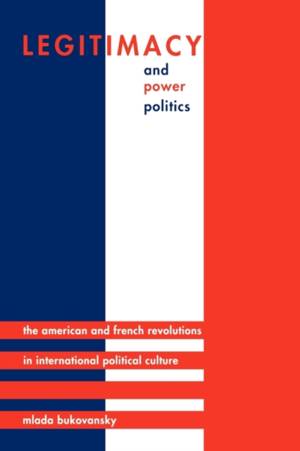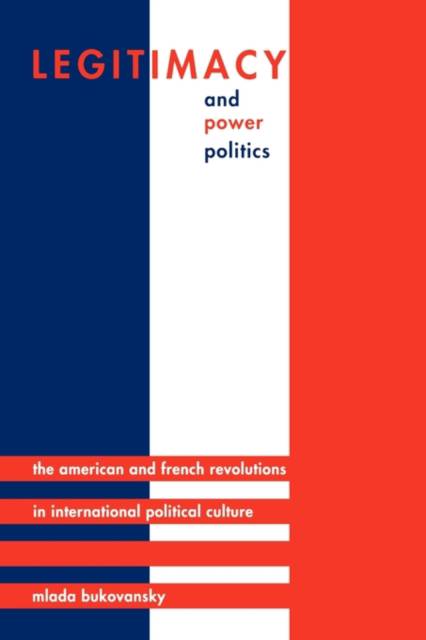
- Retrait gratuit dans votre magasin Club
- 7.000.000 titres dans notre catalogue
- Payer en toute sécurité
- Toujours un magasin près de chez vous
- Retrait gratuit dans votre magasin Club
- 7.000.0000 titres dans notre catalogue
- Payer en toute sécurité
- Toujours un magasin près de chez vous
Legitimacy and Power Politics
The American and French Revolutions in International Political Culture
Mlada Bukovansky
70,95 €
+ 141 points
Description
This book examines the causes and consequences of a major transformation in both domestic and international politics: the shift from dynastically legitimated monarchical sovereignty to popularly legitimated national sovereignty. It analyzes the impact of Enlightenment discourse on politics in eighteenth-century Europe and the United States, showing how that discourse facilitated new authority struggles in Old Regime Europe, shaped the American and French Revolutions, and influenced the relationships between the revolutionary regimes and the international system.
The interaction between traditional and democratic ideas of legitimacy transformed the international system by the early nineteenth century, when people began to take for granted the desirability of equality, individual rights, and restraint of power. Using an interpretive, historically sensitive approach to international relations, the author considers the complex interplay between elite discourses about political legitimacy and strategic power struggles within and among states. She shows how culture, power, and interests interacted to produce a crucial yet poorly understood case of international change. The book not only shows the limits of liberal and realist theories of international relations, but also demonstrates how aspects of these theories can be integrated with insights derived from a constructivist perspective that takes culture and legitimacy seriously. The author finds that cultural contests over the terms of political legitimacy constitute one of the central mechanisms by which the character of sovereignty is transformed in the international system--a conclusion as true today as it was in the eighteenth century.Spécifications
Parties prenantes
- Auteur(s) :
- Editeur:
Contenu
- Nombre de pages :
- 272
- Langue:
- Anglais
- Collection :
- Tome:
- n° 120
Caractéristiques
- EAN:
- 9780691146706
- Date de parution :
- 10-01-10
- Format:
- Livre broché
- Format numérique:
- Trade paperback (VS)
- Dimensions :
- 156 mm x 234 mm
- Poids :
- 376 g

Les avis
Nous publions uniquement les avis qui respectent les conditions requises. Consultez nos conditions pour les avis.






